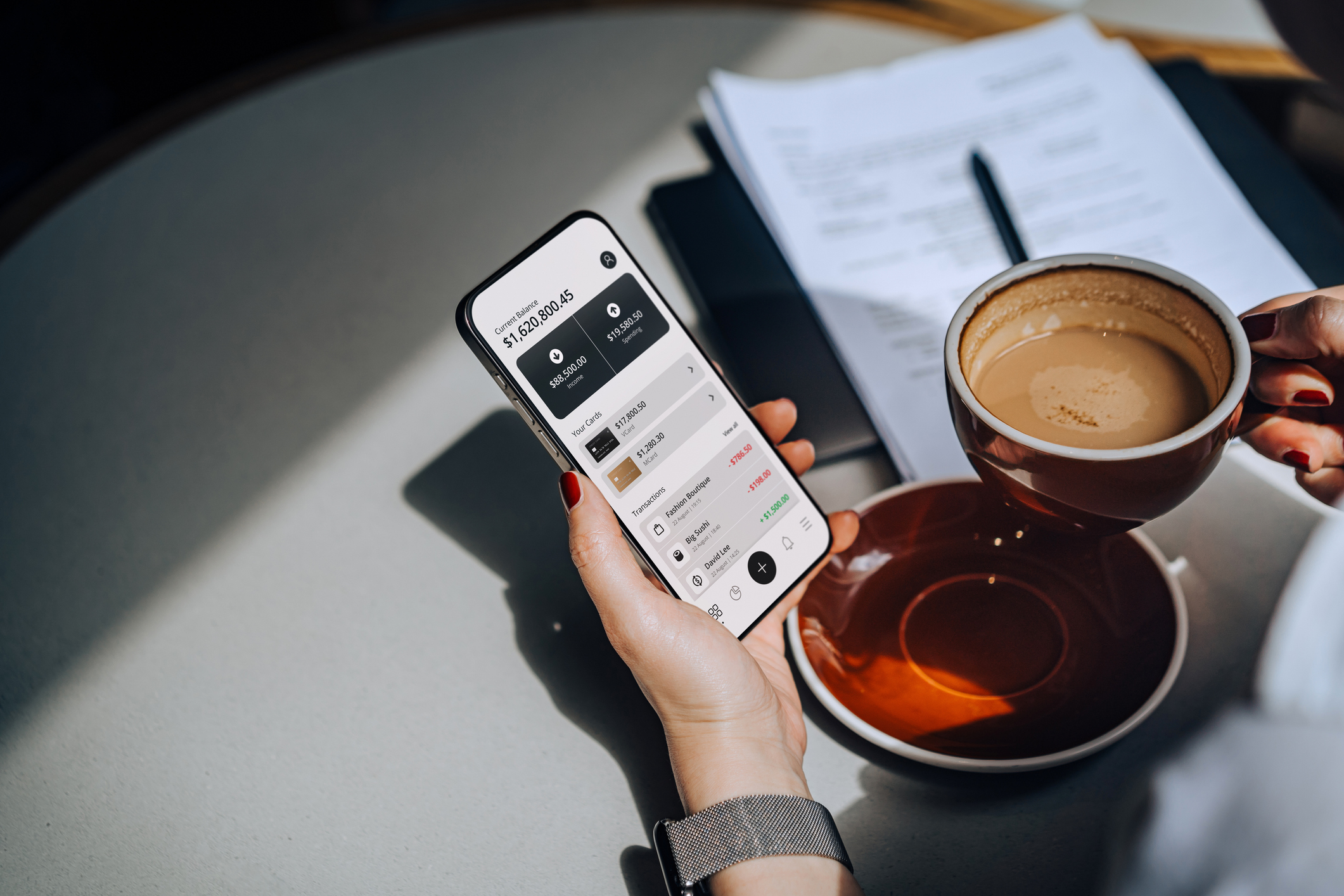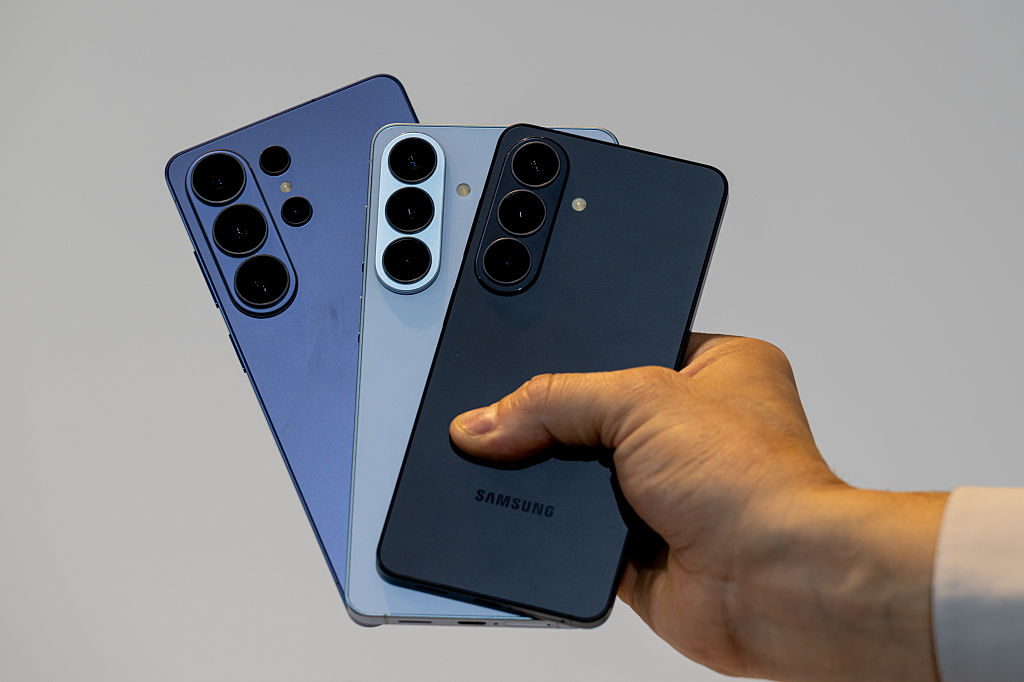Seven of the Best Budgeting Apps for 2026
If you're searching for a great budgeting app, here are our top picks.

Sean Jackson
Profit and prosper with the best of Kiplinger's advice on investing, taxes, retirement, personal finance and much more. Delivered daily. Enter your email in the box and click Sign Me Up.
You are now subscribed
Your newsletter sign-up was successful
Want to add more newsletters?
Having and adhering to a budget is a smart financial habit to develop. Doing so keeps you on course to meet your financial goals.
This is where a budgeting app is essential. These apps can help you declutter your finances by organizing expenses into categories. They can also help you stay on course to meet your short and long-term financial goals.
Here’s a look at other budget apps you can download through the Apple App Store or Google Play. All of the apps listed here assure users that data obtained from their bank accounts is password-protected and will not be shared with third-party vendors.
From just $107.88 $24.99 for Kiplinger Personal Finance
Become a smarter, better informed investor. Subscribe from just $107.88 $24.99, plus get up to 4 Special Issues

Sign up for Kiplinger’s Free Newsletters
Profit and prosper with the best of expert advice on investing, taxes, retirement, personal finance and more - straight to your e-mail.
Profit and prosper with the best of expert advice - straight to your e-mail.
Best overall budgeting app: You Need a Budget

You Need a Budget is a strong choice if you want a detailed and hands-on budgeting app to monitor expenses. By helping you prioritize where you spend your money, YNAB offers a holistic approach to monitoring your spending habits. YNAB provides four rules for users to follow.
The first is the zero-based budgeting method, in which you assign every dollar in your bank account to a specific expense. If an emergency arises, the app accommodates budget changes for surprise expenses.
The second rule is to plan for large, infrequent expenses (say, for home repairs or annual insurance premiums) by setting aside money for them each month. Meanwhile, the third rule encourages you to make adjustments if you run out of money in one of your budgeting categories by moving money to it from a different category.
YNAB’s fourth rule is to “age your money” — in other words, once you get used to budgeting and spending less, you can pay for your current monthly bills with money you saved from the previous month rather than from your most recent paycheck. In addition to providing budgeting advice, YNAB also offers live money-management workshops online.
Price: Sign up for a free trial for 34 days, then $14.99 a month or $109 for an annual membership.
Best for beginners: Simplifi and Tiller
If you're new to budgeting apps, you can ease in with one of these choices.
Quicken's Simplifi features easy-to-navigate menus and charts, and creates a personalized spending plan you can use to monitor your income and expenses. Your spending plan adjusts as your expenses change, and the app’s features let you easily tweak your budget. In addition to tracking your spending, Simplifi helps you plan for the future, projecting your cash flow based on upcoming bills so you can change your spending accordingly. Quicken also recently released LifeHub, which organizes your most important financial documents into a secure, digital hub. This protects them in the event your home has a fire, flood or other disaster. The service is only $1.99 per month.
Price: Sign up for Quicken Simplifi at $2.99 monthly, billed annually.
Tiller may be the best app for you if you like using spreadsheets to balance your budget. After you link your financial accounts to Tiller, you can use one of its templates to create a customized budget spreadsheet in Google Sheets or Microsoft Excel, and the sheets automatically draw in updated information about your spending and balances from the linked accounts. You can also have Tiller send you daily email updates about your account balances.
Price: Try it free for 30 days, then $79 annually.
Best app for investors: Empower

I recommend Empowerbecause it's easy to use and houses many of your personal finance accounts into one hub. I started using it last year and never looked back because it's free, easy to use, and simplifies financial management.
For example, if you have investment accounts with Fidelity Investments and Morgan Stanley, you can review both of your portfolios, including a breakdown of holdings and their allocations, on a dashboard on the Empower app. You can also link other types of accounts, such as 529 college savings plans, health savings accounts and your home mortgage.
Price: Get the Empower app free on Google Play or the Apple App Store.
Best for debt management: PocketGuard
If you subscribe to a PocketGuard Plus membership, you can set up a debt-payoff plan integrated into your budget. You enter details such as the minimum payment and annual percentage rate of your debts, and PocketGuard allocates adequate money to put toward the debt and compiles a payment schedule. Members of the Plus plan can also create unlimited budgets and savings goals.
The free Basic plan lets you create a budget and track your bills, spending and income.
Price: Try the Plus plan free for 7 days. The Plus plan is $12.99 monthly, $74.99 annually.
Best app for couples: Honeydue

After you download the Honeydue app, you can invite your partner via email or text message to download it, too. Once you both have the app, you can monitor your budgets and track your spending habits for joint accounts. (Your partner won’t be able to see information about your individual accounts and vice versa.) You can also coordinate bill payments and discuss how to manage your budget in the app’s chat section.
Price: Download the free app on the Apple App Store or on Google Play.
Best for you and your financial adviser: Monarch
While some budgeting apps help you stay on track with your partner, Monarch lets you team up with your financial adviser. As with other budgeting apps, once you connect your accounts to Monarch, you can track your spending. However, Monarch also allows you to securely share your account information with your adviser so you can collaborate on your savings and investment goals. You can also share the app with your partner or someone else from your household, who will have their own login.
Once you create an account with Monarch, you can add your financial adviser for free. Your adviser can securely log in to their separate account and won’t be able to see your personal identifying information, such as your bank account number.
Price: $14.99 monthly or $99.99 annually.
For a limited time, get 50% off your first year with code: MONARCHVIP
Using budgeting apps as a baseline, but also consider other options
Gerber notes that while budgeting apps can be helpful, you should adopt a hands-on approach to managing your budget. Set a money date once a month where you review your finances. And if you're in a relationship, it gives both parties a chance to discuss financial goals and concerns.
And even if you use an app, he adds, you should consider meeting with a financial adviser to discuss the best way to meet your financial goals.
Note: This item first appeared in Kiplinger Personal Finance Magazine, a monthly, trustworthy source of advice and guidance. Subscribe to help you make more money and keep more of the money you make.
Related Content
- Learn How to Manage Your Money Like a Millionaire
- How to Budget as a Couple Without Fighting About Money
- Bucket Budgeting: An Easy Way To Manage Cash Flow
- Budgeting Basics for Wealth, Health and Happiness
- The 50-30-20 Budget Rule is a Simple Way to Save Money
Profit and prosper with the best of Kiplinger's advice on investing, taxes, retirement, personal finance and much more. Delivered daily. Enter your email in the box and click Sign Me Up.

Ella Vincent is a personal finance writer who has written about credit, retirement, and employment issues. She has previously written for Motley Fool and Yahoo Finance. She enjoys going to concerts in her native Chicago and watching basketball.
- Sean JacksonPersonal finance eCommerce writer
-
 3 Smart Ways to Spend Your Retirement Tax Refund
3 Smart Ways to Spend Your Retirement Tax RefundRetirement Taxes With the new "senior bonus" hitting bank accounts this tax season, your retirement refund may be higher than usual. Here's how to reinvest those funds for a financially efficient 2026.
-
 5 Retirement Tax Traps to Watch in 2026
5 Retirement Tax Traps to Watch in 2026Retirement Even in retirement, some income sources can unexpectedly raise your federal and state tax bills. Here's how to avoid costly surprises.
-
 Trump's New Retirement Plan: What You Need to Know
Trump's New Retirement Plan: What You Need to KnowPresident Trump's State of the Union address touched upon several topics, including a new retirement plan for Americans. Here's how it might work.
-
 The Best Short-Term CD for Your Cash in 2026
The Best Short-Term CD for Your Cash in 2026This strategy can help you earn thousands in months.
-
 Thinking of Switching Phone Carriers? Do These 8 Things First
Thinking of Switching Phone Carriers? Do These 8 Things FirstSwitching carriers is easier than ever, but overlooking the fine print could cost you. Here’s what to check before you make the move.
-
 Samsung Galaxy S26 Ultra: What to Know Before You Upgrade
Samsung Galaxy S26 Ultra: What to Know Before You UpgradeThe Galaxy S26 Ultra brings new features and strong launch deals, but whether it’s worth upgrading depends on what you already own.
-
 What Is an Assumable Mortgage and Could It Save You Thousands?
What Is an Assumable Mortgage and Could It Save You Thousands?With mortgage rates still elevated, taking over a seller’s existing home loan could lower monthly payments — if the numbers work.
-
 Have You Fallen Into the High-Earning Trap? This Is How to Escape
Have You Fallen Into the High-Earning Trap? This Is How to EscapeHigh income is a gift, but it can pull you into higher spending, undisciplined investing and overreliance on future earnings. These actionable steps will help you escape the trap.
-
 I'm a Financial Adviser: These 3 Questions Can Help You Navigate a Noisy Year With Financial Clarity
I'm a Financial Adviser: These 3 Questions Can Help You Navigate a Noisy Year With Financial ClarityThe key is to resist focusing only on the markets. Instead, when making financial decisions, think about your values and what matters the most to you.
-
 Where Olympians Store Their Medals is a Great Lesson For Your Valuables and Cash
Where Olympians Store Their Medals is a Great Lesson For Your Valuables and CashWhat you can learn about protecting your cash and values from where Olympians store their medals.
-
 An Executive's 'Idiotic' Idea: Skip Safety Class and Commit a Federal Crime
An Executive's 'Idiotic' Idea: Skip Safety Class and Commit a Federal CrimeSeveral medical professionals reached out to say that one of their bosses suggested committing a crime to fulfill OSHA requirements. What's an employee to do?